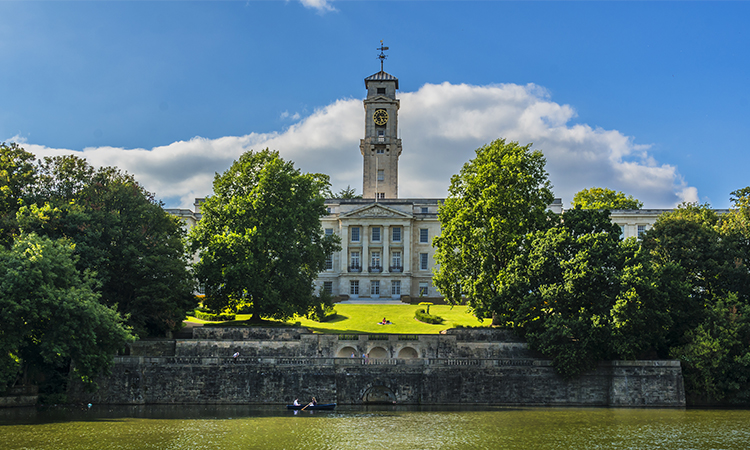University of Nottingham: Nottingham trio share award for brain imaging innovation
A trio of young Nottingham scientists have been recognised for their work to transform brain imaging with the development of a new kind of wearable brain scanner.
Elena Boto, Ryan Hill and Niall Holmes from the University of Nottingham’s School of Physics and Astronomy have been awarded the Clifford Paterson Medal from the Institute of Physics (IOP). It has been awarded for their work on the development of wearable, lightweight brain imaging technology that can provide images of human brain function with unprecedented accuracy, even whilst the patient is moving.
The team have been working on this project since 2015. Together they have pioneered the rapid development of this new scanner, which employs quantum enabled sensors to measure magnetic fields above the scalp (a process termed magnetoencephalography (MEG).
Dr Elena Boto with child wearing MEG brain scanner
They used small, lightweight optically pumped magnetometers (OPMs), which employ the fundamental quantum physics of atoms to measure the neuromagnetic field. The team were able to incorporate these sensors into a novel scanner design that can be worn as a helmet allowing people to move freely The system can be adapted to anyone, from newborns to adults, and sensors can be placed much closer to the head, dramatically enhancing data quality. OPM-MEG is also cheaper than conventional scanners.
The work that Elena, Ryan and Niall have done is genuinely ground-breaking, with far reaching implications for healthcare. Individually, they are exceptional scientists, but working together they have achieved something that is truly and uniquely special. The Clifford Patterson Medal from the IOP is richly deserved, and a wonderful recognition of Elena, Ryan and Niall’s achievements.
Professor Matt Brookes, MEG research lead at the University of Nottingham
The combined efforts of the team has made the commercialisation of OPM-MEG viable. Cerca Magnetics Limited was launched in July 2020, with Boto, Holmes and Hill as co-founders. In its first year, Cerca was profitable with over £1 million of sales; sales of greater than £3 million are predicted in 2022. Customers include major children’s hospitals and leading academic institutions worldwide. This new technology has potential to significantly enhance 21st Century healthcare.
The IOP awards celebrate physicists at every stage of their career; from those just starting out through to physicists at the peak of their careers, and those with a distinguished career behind them.
They also recognise and celebrate companies which are successful in the application of physics and innovation, as well as employers who demonstrate their commitment and contribution to scientific and engineering apprenticeship schemes.
Congratulating this year’s Award winners, Institute of Physics President, Professor Sheila Rowan, said: “On behalf of the Institute of Physics, I warmly congratulate all of this year’s Award winners.
“Each and every one of them has made a significant and positive impact in their profession, whether as a researcher, teacher, industrialist, technician or apprentice.
“Recent events have underlined the absolute necessity to encourage and reward our scientists and those who teach and encourage future generations. We rely on their dedication and innovation to improve many aspects of the lives of individuals and of our wider society.”

